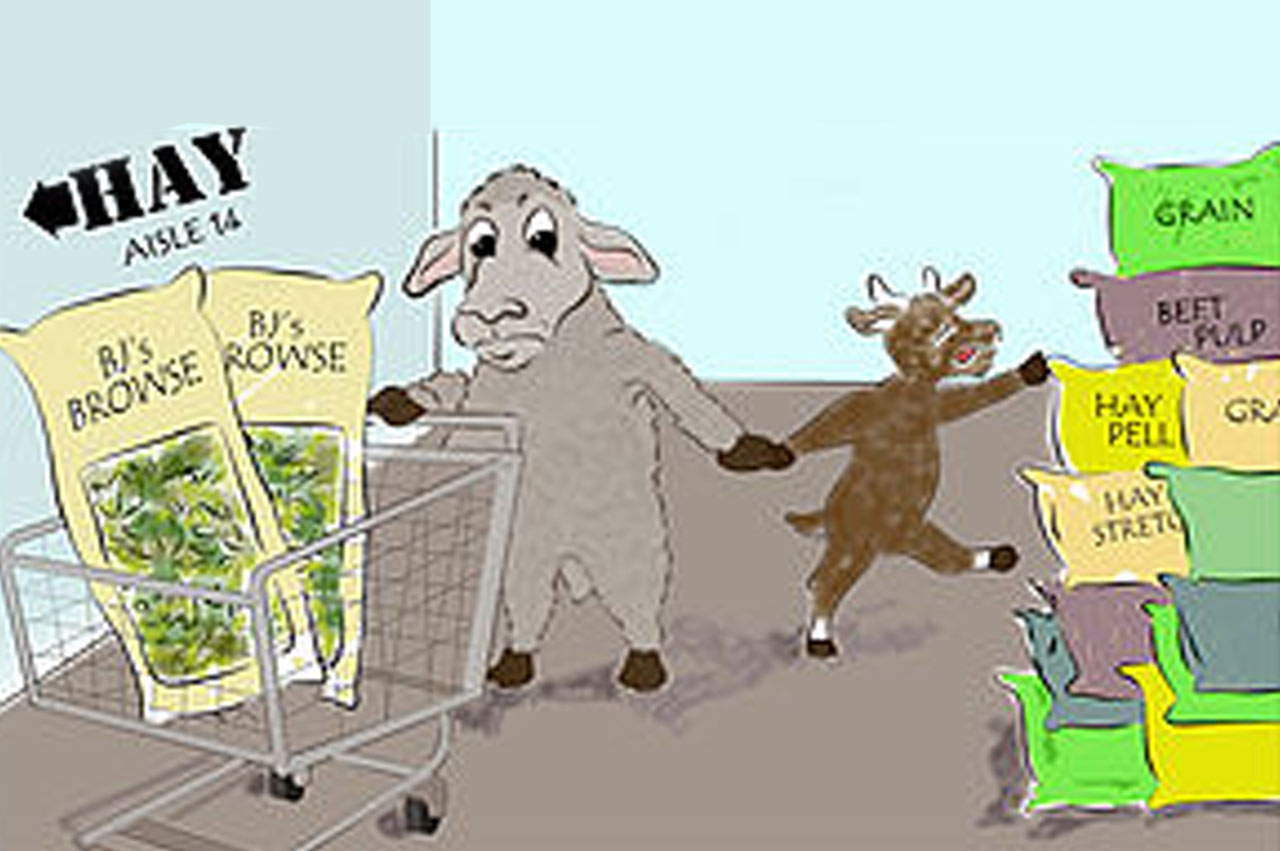In an ideal world sheep and goats would live on a diet consisting entirely of forage (grass, hay) and browse (leaves, shrubs). While there are commercial grains available for sheep and goats, most of these are designed for short term feeding in a production setting where fast growth is optimal. In your companion sheep or goat, you are keeping them for a longer period of time than a production animal, and there are complications that can occur from feeding grain.
Sheep and goats can develop urinary tract stones (urolithiasis) from the mineral imbalances caused by feeding grain. This is particularly problematic in male animals who can obstruct their urinary tract. Complete urinary obstruction is an emergency condition that can lead to bladder rupture and life threatening electrolyte disturbances. Initial medical management of urinary obstruction involves anti- inflammatory medications to decrease the swelling in the urinary tract to help the urinary stones to pass. Due to the anatomy of small ruminants, it is not possible to pass a urinary catheter and surgery is required to resolve the obstruction if the animal does not respond to medical management. Urinary tract stones are very rare in animals eating a completely forage based diet.
As many pet small ruminant are receiving sufficient calories from their diet without the addition of grain, grain feeding often leads to obesity. Obesity in sheep and goats can put extra strain on their joints and predispose them to early arthritis. In pregnant animals, obesity can increase the risk of pregnancy toxemia and dystocia (difficult birth).
Sheep and goats have different nutritional requirements than horses. This is why it is never appropriate to feed horse grain or concentrates designed for horses to small ruminants. In particular, horse feeds contain levels of copper that can cause copper toxicity in sheep and goats.
Even dairy goats do not need additional grain for milk production if they have good quality forage and browse. If you do need to supplement dairy goats with grain, it is important to choose a grain formulated for lactating goats and you must follow the manufacturer’s guidelines carefully to avoid over feeding. If you have any questions please call us and we will be glad to discuss your sheep and goat feeding needs.

